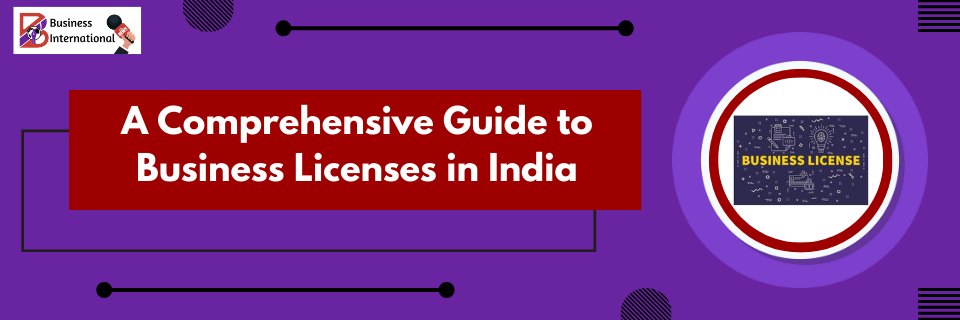Understanding Different Types of Business Licenses in India
13 Oct 2023

Understanding Different Types of Business Licenses in India.
Starting and running a business in India involves navigating through a maze of regulatory requirements. One of the crucial aspects is obtaining the right business licenses. These licenses vary based on the nature of your business and the location in India. In this article, we will walk you through different types of business licenses in India, making this often complex process a bit simpler.
Trade License:
A trade license is a basic requirement for all businesses in India. It is issued by the municipal corporation of the respective city. The purpose is to regulate businesses to ensure public safety and health standards are met.
Shops and Establishment License:
If you have a physical establishment like a shop, office, or commercial place, you need to obtain this license from the local municipal authority. It's essential for regulating working conditions and employee rights.
GST Registration:
The Goods and Services Tax (GST) is a unified tax that replaced various other taxes. It's mandatory for most businesses in India to have a GST registration. It's essential for taxation purposes.
Professional Tax License:
This license is applicable to professionals like doctors, lawyers, and chartered accountants. It's levied by state governments and varies from state to state.
FSSAI License:
If you're in the food industry, whether you're involved in making, processing, or distributing food products, you must possess an FSSAI (Food Safety and Standards Authority of India) license. This license guarantees the quality and safety of food items.
Import Export Code (IEC):
For businesses involved in import and export, an Import Export Code is necessary. It's issued by the Directorate General of Foreign Trade (DGFT) and is mandatory to engage in international trade.
Drug License:
Pharmaceutical businesses must obtain drug licenses from the State Drug Control Organization. These licenses ensure the quality and safety of pharmaceutical products.
MSME Registration:
The Ministry of Micro, Small and Medium Enterprises (MSME) provides registration for small and medium-sized enterprises. This registration offers various benefits like subsidies and easy access to loans.
Labour License:
For businesses employing a certain number of workers, a labor license is required. It ensures the welfare and protection of laborers.
Environmental Clearance:
Businesses that have a significant environmental impact need environmental clearance. This includes industries like mining, thermal power plants, and large-scale construction projects.
Central Ground Water Authority License:
If your business involves groundwater extraction or usage, you'll need a license from the Central Ground Water Authority. It's crucial to monitor and regulate groundwater usage.
Alcohol License:
Businesses that sell alcohol, like bars and liquor stores, must obtain distinct licenses, with rules and prerequisites differing between states.
Customs Broker License:
If your business involves customs clearance and handling of imports and exports, a customs broker license is essential.
Trademark Registration:
While not a license in the traditional sense, trademark registration is vital for protecting your brand and intellectual property.
Fire Department License:
Certain businesses must obtain a fire department license to ensure compliance with fire safety standards.
Navigating the world of business licenses in India can be challenging, but it's a necessary step to ensure your business operates legally. The specific licenses you need depend on the type of business and your location. Consult with a legal expert or regulatory authority to ensure you